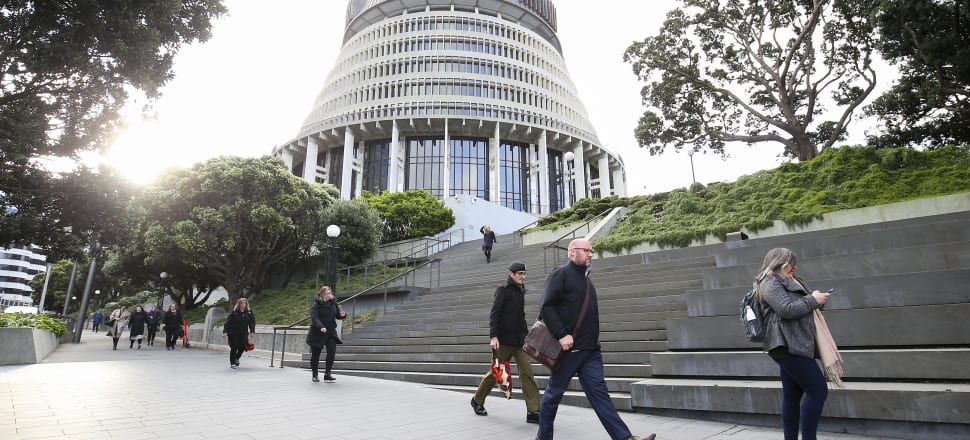
Lianne Dalziel was a minister in government. She was a mayor. She believes many of the answers she sought from central and local government were in truth to be found within communities themselves
Opinion: After the Christchurch earthquakes, our agency returned in an instant. Our ability to do things for ourselves returned in the crisis.
We proved ourselves capable of doing things we otherwise would expect someone else to do. We didn’t do that alone – we did it as neighbours and as communities, be they pre-existing or newly formed.
But it didn’t last. The Government was soon back in charge.
READ MORE: * Proposal to break central-local deadlock on Three Waters and climate * Citizen assemblies offer hope for democracy and climate change challenges
Reading of New Citizenship Project founder Jon Alexander’s visit to our side of the world late last year led me to put his book on my summer reading list. Citizens – why the key to fixing everything is all of us, which he co-wrote with Ariane Conrad, is an excellent read, but one that had me musing about another book I had read just over a decade ago.
Do we want to be consumers of government services, or citizens active in our neighbourhoods and communities, helping to solve problems that affect us all?
It had also inspired me to believe that many of the answers we were looking for in central government – and later in local government – were to be found within communities themselves.
The Abundant Community: Awakening the Power of Families and Neighbourhoods by John McKnight and Peter Block led me to realise that we, as citizens in the broadest sense, had ceded our power to central and local government at great cost to our sense of agency as communities. And that's what the aftermath of the earthquakes had restored for a moment in time.
These writers warn us of the dangers of the dependency that results from governments fixing our problems for us; robbing us of our capacity to problem-solve, and reducing our ability to build resilience. And that is something we are going to need in spades as we confront the challenges we know are coming our way.
Both books have a strong focus on the impact of consumerism on our lives. We are diminished as citizens and as neighbourhoods when we are defined by what we consume. When governments serve our needs as they define them, we lose our capacity as communities to use our strengths to do things for ourselves.
Do we want to be consumers of government services, or citizens active in our neighbourhoods and communities, helping to solve problems that affect us all?
Could we not be the nation that leads the way in terms of participatory democracy and crowdsourcing solutions to problems we ought to be able to solve together?
I'd rather that was the introduction to Citizens than reading New Zealand being described as one of the lifeboats some of the richest people in the world are scrambling onto.
The Citizen Story, we are told, is about the empowerment of us all to co-invent and nurture our own futures. That could be our story.
But we are on the receiving end of 'government knows best', even when they choose a referendum.
I was deeply frustrated by the outcome of the referendum on cannabis reform. I contrast it with the referendum on the End of Life Choice legislation.
In the latter case a bill had been introduced and been through a special select committee that included all parties. There was much written on the subject and public hearings had seen all issues openly discussed. It was amended and reported back to Parliament in a form that was then put to the vote. The result of the referendum was in favour.
On the other hand, the cannabis referendum question was whether legislation should be introduced. So, it was a referendum to start a process, not to conclude it after all sides had been heard. No wonder the results did not ring true.
Reading Citizens, I learned more of the Citizens' Assembly that had preceded the referendum which produced the historic result overturning Ireland’s abortion ban. Over five weekends, a representative sample of the Irish population heard expert evidence and listened to women affected by the laws, as well as campaigns and lobby groups. This was all in the public arena, and there was extensive media coverage, which seemed to minimise the impact of disinformation campaigns.
And given that the percentage of the Citizens' Assembly and the public who voted in the referendum for the lifting of the ban were virtually the same, maybe this is a process we could learn from.
Although I believe the government should revisit the cannabis referendum using a form of citizens' assembly, why stop there?
Surely this is a model that not only improves the quality of decision making, but also increases trust in the result. Well-informed citizens are more than capable of understanding the issues and contributing meaningfully to the debate. And governments can take comfort in what this non-aligned participatory democracy can add to the quality of that debate.
Concerns continue to be raised about how people have lost trust in their governments, but the truth is that governments don’t seem to trust the people.
Maybe this is a model that could see trust restored both ways.







